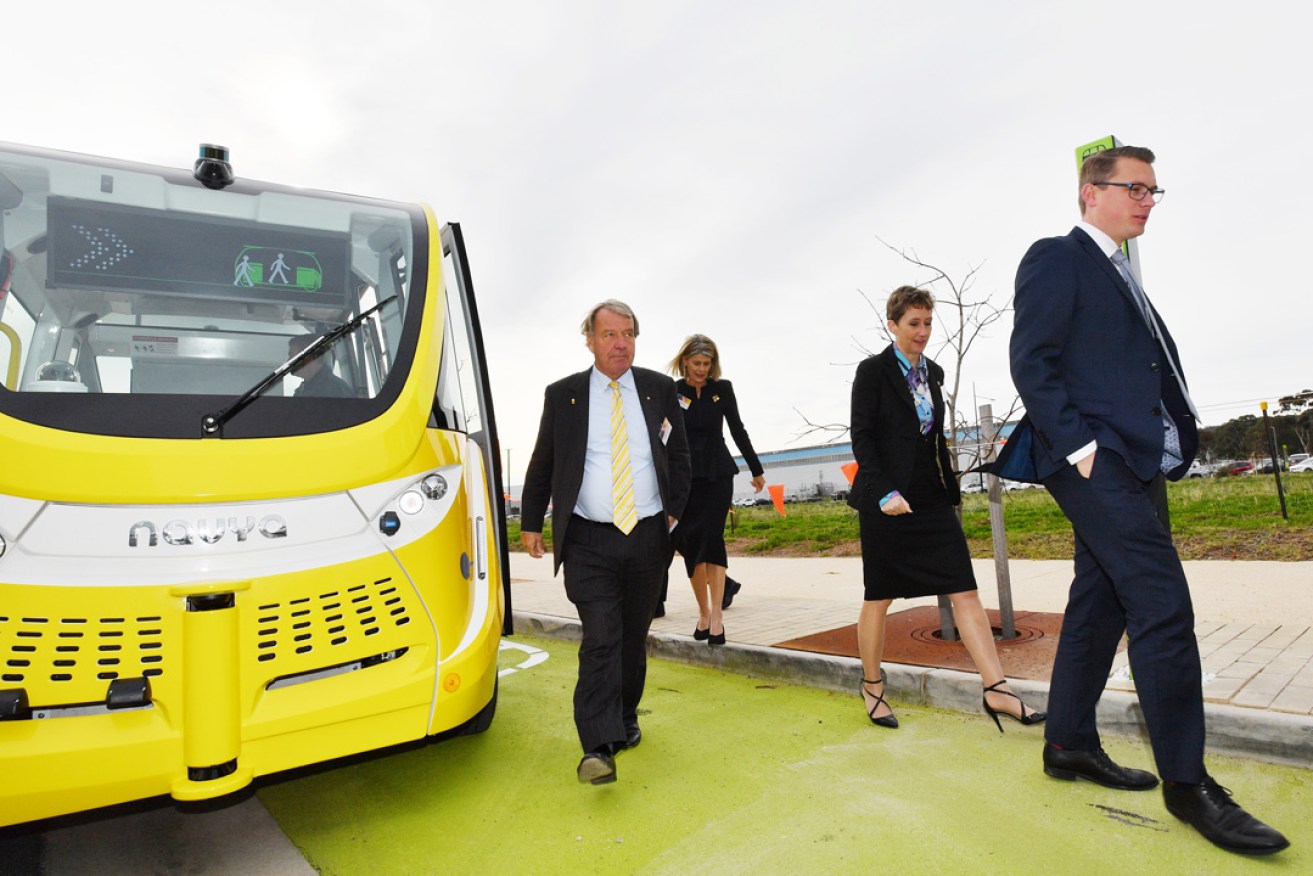Driverless cars a jobs boon for some in SA, not for others
Even as it poses a serious threat to transport jobs in South Australia, the impending autonomous vehicle revolution is likely to be a boon for advanced manufacturing workers here, Transport Minister Stephan Knoll says.


Minister for Transport, Stephan Knoll (right) is seen in front of the Flex Autonomous vehicle at Tonsley Park. Photo: AAP / David Mariuz
The State Government has launched its second round of grants from the Future Mobility Lab Fund, offering $3 million for research and development, testing and deployment of autonomous vehicle technology in South Australia.
A trial of an autonomous ride-sharing fleet – an Uber-like service for driverless cars – autonomous transit services for regional areas, elderly people and people with a disability, and the development of a commercial autonomous vehicle test track facility have been identified among the priority areas for funding.
Knoll told InDaily South Australia has natural advantages that will allow its workers to benefit from the imminent autonomous vehicle revolution including a permissive legislative framework allowing companies to trial cutting-edge technology and a strong advanced manufacturing sector.
But he said it would also threaten jobs in the public transport and ride-sharing industries.
“What (autonomous vehicles) will be used for is still an open question,” he said.
“But the fact they’re coming is an answered question.
“Instead of calling an Uber … it could be that you use an app (to summon) a driverless vehicle. That’s what it could look like.”
He agreed that there was no reason that there couldn’t be driverless public transport, like buses and trains, and that would mean job losses in those industries.
“That’s exactly right,” he said.
“With any of those sort of new technologies, there’s (disruption).
“That’s why we need to make sure that we bring as much of the autonomous vehicle technology (industry here).
“We are trying to get the benefits of those … jobs.”
He said there were also “security risks” involved in the uptake of driverless cars, including hacking, but they were safer than vehicles directed by humans.
“I can understand the obvious scepticism (in) parts of the community,” he said.
“The idea of a vehicle that’s not controlled by a human being on our roads … (creates), for want of a better term, some cognitive dissonance.
“We actually feel safer when someone is behind the wheel (but) for a whole host of reasons in an autonomous vehicle can be safer.”
He said the Future Mobility Funding Lab, set up originally by the Weatherill Government in 2016, was about gaining community acceptance for the technology.
Companies, industry bodies, research institutions and other organisations can submit proposals for grants from the fund until July 30, 2018.




